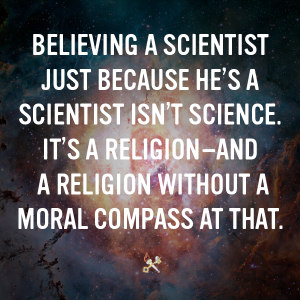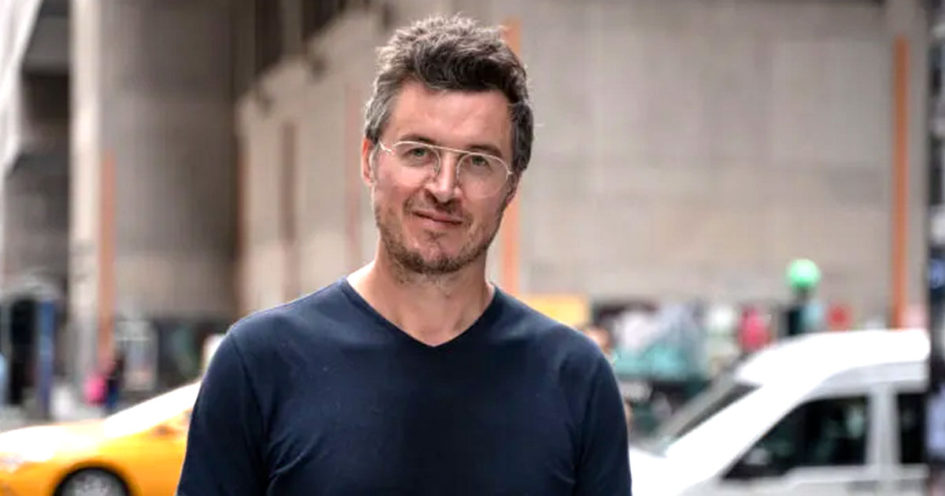As the world descended into medical fascism during the COVID pandemic, Mattias Desmet was one of the voices providing an explanation. He asserted that much of the world had been primed for totalitarianism through a sense of alienation from fellow man and an increase in “free-floating anxiety”. When the powers that be presented COVID as an unprecedented threat to humanity, this gave people a reason to come together to fight it and also provided a target for their anxiety.

The result of this campaign was what Desmet called “mass formation“—a unification of the populace behind the anti-COVID narrative. This sort of group hypnosis made people do things they would not have done under normal circumstances—things like give up fundamental liberties and dehumanize large sections of the human race because they dared to question the narrative.
Desmet elaborated on this theory in the book “The Psychology of Totalitarianism” with an interesting metaphysical approach. While people familiar with modern psychology and behavioral economics books may be disappointed in the lack of scientific studies presented in the book, it does put forth a compelling argument that totalitarianism is the natural end of a materialist mindset.
The Setup
In the first part of the book, Desmet explains how we as a civilization got to the point where we were subject to mass formation. He writes that science started out as the free-thinking alternative to the dogmatic dark ages of religion. In this, he presents a caricature of religion—specifically Christianity in Europe—which he portrayed as expressly anti-science.
This may fit the story Desmet is trying to present but it’s a poor historical assessment. The Catholic Church was the mother of modern science, producing great thinkers like Sir Roger Bacon (founder of the scientific method), Nicole Oresme (mathematics, physics, and economics), Father Nicholas Steno (founder of geology), Father Georges Lemaître (astronomy), Friar Gregor Mendel (founder of genealogy), Louis Pasteur (immunology), and Father Roger Boscovich (physics).
And the Church created the university—not to suppress knowledge but to attain it. As historian Thomas Woods wrote in How the Catholic Church Built Western Civilization, “Historians have marveled at the extent to which intellectual debate in those universities was free and unfettered. The exaltation of human reason and its capabilities, a commitment to rigorous and rational debate, a promotion of intellectual inquiry and scholarly exchange—all sponsored by the Church—provided the framework for the Scientific Revolution.”
This flaw in Desmet’s thesis sets up the paradox of the Enlightenment, which ostensibly brought about a civilization of free-thought and science-based reasoning, leading to the modern science-free medical totalitarianism we’re seeing today.
Totaliterrorism
Desmet draws heavily on Jewish-German philosopher Hannah Arendt that totalitarianism stems from the faith we have in rational man—that is the hubris that man can perfect society with enough knowledge. This, of course, was the fatal flaw of the Nazis. They thought that they were smart enough to engineer a society. They ended up engineering their own destruction.

Desmet seems to assert that the more we try to base society on a rational framework, the more irrational society becomes. As I have said before, “believing in science” isn’t science; it’s a religion and a religion without a moral compass at that. We put our faith in reason, which is totally unreasonable. The result is societal madness. And that certainly played out in the absolute insanity we witnessed during the pandemic (e.g. prohibiting safe and effective drugs while promoting dangerous and ineffective treatments, wearing masks alone in a car, people beating each other for not following absurd protocols, etc.).
English Catholic writer GK Chesterton wrote about this extensively and summing up the idea with the pithy, “You can only find truth with logic if you have already found truth without it.”
The Antidote
Desmet makes it clear that he’s not a conspiracy theorist and even goes as far as to gaslight readers on the clear conspiracy that capitalized on COVID in order to usher in the Great Reset. So his solution isn’t to take down the conspiracy.
Instead, Desmet then explains how, in order to prevent totalitarianism from taking root, we must acknowledge that the universe is not material. There has always been some uncertainty in the measurement of phenomena—even in classical Newtonian science (e.g. the length of a coastline is determined by the fidelity of the measurement). And as quantum physics has demonstrated, matter is actually not matter but energy and uncertainty is the only certainty at the subatomic level.
Having seemingly discounted religion whole cloth at the beginning of the book, he proposes a secular “soul” of the universe that, while we don’t have to worship, we at least have to acknowledge. To many, this may seem like religion without extra steps. With an accurate picture of what the Church brought in terms of knowledge, he might understand that Christianity in particular is the enemy of this modern technocratic death cult of the state because it is the antidote.
 The Libertarian Catholic
The Libertarian Catholic
















